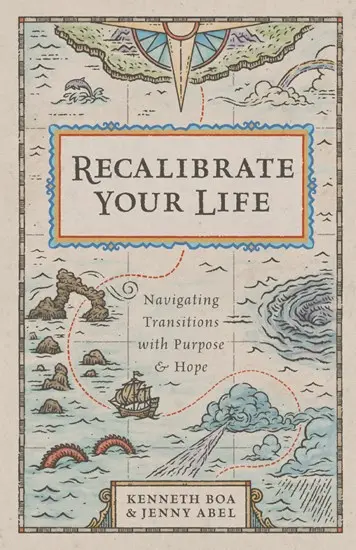Originally written in 2002.
[lead]My father always hoped that one day, his “ship would come in.”[/lead] Although he was a bus driver, he spent a lot of time and effort on the side, going from one venture to another in quest of the elusive cash cow. He never nabbed one, but I was able to say at his funeral that his ship had finally come to port. It was the good ship Jesus who brought him safely to the other shore and gave him something far better and lasting than worldly treasure. [blockquote quote=”… his ship had finally come to port. It was the good ship Jesus who brought him safely to the other shore and gave him something far better and lasting than worldly treasure.” align=”left” max_width=”50%”]In my dad’s high school yearbook, each of the students answered the standard question about what they hoped the future held for them. The answers were typical—doctor, teacher, successful businessman—except my father’s. Under his photograph, his stated hope was alarmingly simple and probably embarrassing to his classmates: he said, “I hope to go to heaven.”
My dad sometimes talked with me about his ideas of heaven, and when I was a teenager, it appeared that he finally came to know Jesus. But a few years ago, I wanted more assurance and visited him to ask him the time–tested question, “If you were to die tonight and God were to ask you why he should let you into heaven, what would you tell him?” His answer to that question gives me comfort to this day: “Because Jesus forgave my sins.” I gladly shared that answer at his funeral earlier this year (in March of 2002).
[blockquote quote=”Under his photograph, his stated hope was alarmingly simple and probably embarrassing to his classmates: he said, ‘I hope to go to heaven.'” align=”right” max_width=”50%”]I have attended a number of funerals in the past few years, and the difference between funerals for believers and unbelievers is the difference between day and night, between heaven and earth, and between hope and despair. The “homecoming” ceremony for a person who knew Jesus Christ is a time when our hope in Christ has a true “payoff.” We discover that our faith is more real and powerful during these pivotal times when we are forced to acknowledge our lack of control. For a follower of Christ, death is not the end, but the doorway to a new and greater domain. The body is left behind, but the spirit is in the presence of the Lord until the day when it is joined to a new and glorified resurrection body. Scripture assures us that when we are absent from the body, we will be at home with the Lord (2 Corinthians 5:6–7), and it comforts us with the truth that “God will bring with Him those who have fallen asleep in Jesus” and that “the dead in Christ shall rise first. Then we who are alive and remain will be caught up together with them in the clouds to meet the Lord in the air, and so we shall always be with the Lord” (1 Thessalonians 4:13–18).
[blockquote quote=”For a follower of Christ, death is not the end, but the doorway to a new and greater domain. The body is left behind, but the spirit is in the presence of the Lord until the day when it is joined to a new and glorified resurrection body.”]Loss & Three Dimensions of Time
When a loved one irrevocably departs this life, there are far-reaching implications that extend into the three dimensions of time.
The Past
Whenever I hear of the passing of someone I knew and loved, a flood of memories surge into my consciousness. Images of the person’s life multiply, flashing across the screen of my mind in such a way that I can see all the years of my relationship with the person simultaneously. In times like this, the mind seems to search for and collect all the treasures and troubles and display them in a vivid array that forces one to realize the impact of the other’s life as though for the first time. And I discover not only how much I was shaped by that impact, but also the truth that this person took a real part of me away with him or her. For there were certain responses and facets of my personality that only this person could elicit. Those unique behaviors just do not surface with anyone else.
The Present
The influence of significant people in our lives creates ripple effects that continue to touch our lives long after these people are gone. We cannot measure the repercussions, because they keep compounding and reverberating in subtle ways through the years and generations. The fullness of this process will not be evident until the day of Christ, but it reminds us once again that each of us is called to the present process of fulfilling God’s unique purpose for us during the few years of our earthly sojourn.
Another implication for the present is the importance of treating each moment we spend with someone as though it could be our last contact. This kind of closure would produce a lifestyle of few regrets, because it would mean that we do not leave behind any unfinished business, such as speaking our love, forgiving and asking forgiveness, or expressing our gratitude for all the other person has done and meant.
The Future
[ictt-tweet-blockquote]Funerals are memoranda of reality, and for a time, they open a window of vulnerability to the truth of the temporal versus the eternal.[/ictt-tweet-blockquote]The passing of one who is beloved is a reminder of our own mortality and of the brevity of our pilgrimage in the world. Ecclesiastes 7:2 tells us, “It is better to go to a house of mourning than to go to a house of feasting, because that is the end of every man, and the living takes it to heart.” Funerals are memoranda of reality, and for a time, they open a window of vulnerability to the truth of the temporal versus the eternal. While our defenses and diversions are down, they invite us to answer the question, “Where is my hope? Am I hoping in the promises and rewards of the world, or am I laying hold of a hope that will never fade or disappoint?” Scripture tells us that those who put their hope in Christ will not be disappointed (Romans 9:33). This hope is an anchor of the soul (Hebrews 6:19), but we must take hold to possess it. When we do, it strengthens the believer to remain steadfast during the tempests of life.
My father grasped this hope early and held it long, and it became my hope too.
[raw] [jumbotron title_size=”30px” text_size=”18px” text_align=”center” wpautop=”true”] This hope we have as an anchor of the soul, a hope both sure and steadfast and one which enters within the veil, where Jesus has entered as a forerunner for us, having become a high priest forever according to the order of Melchizedek. (Hebrews 6:19–20)
[/jumbotron] [/raw]



